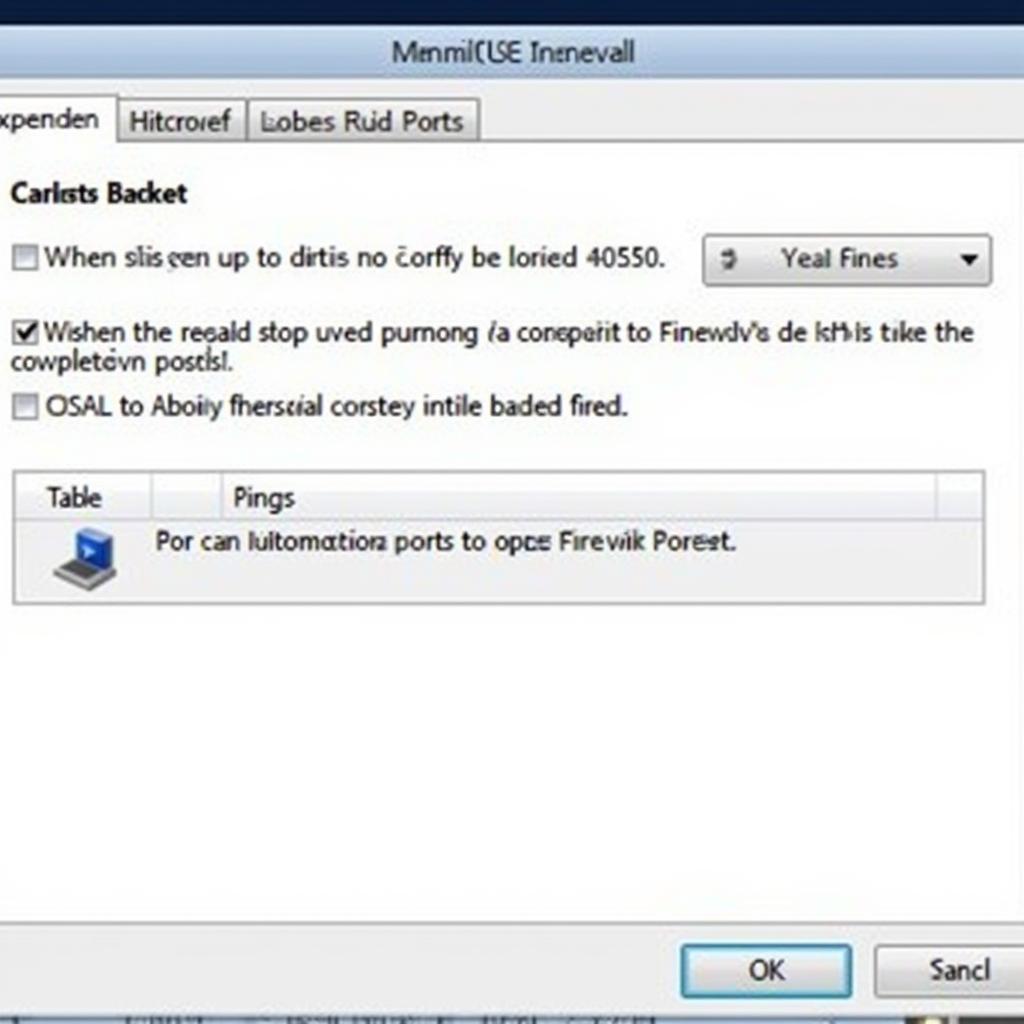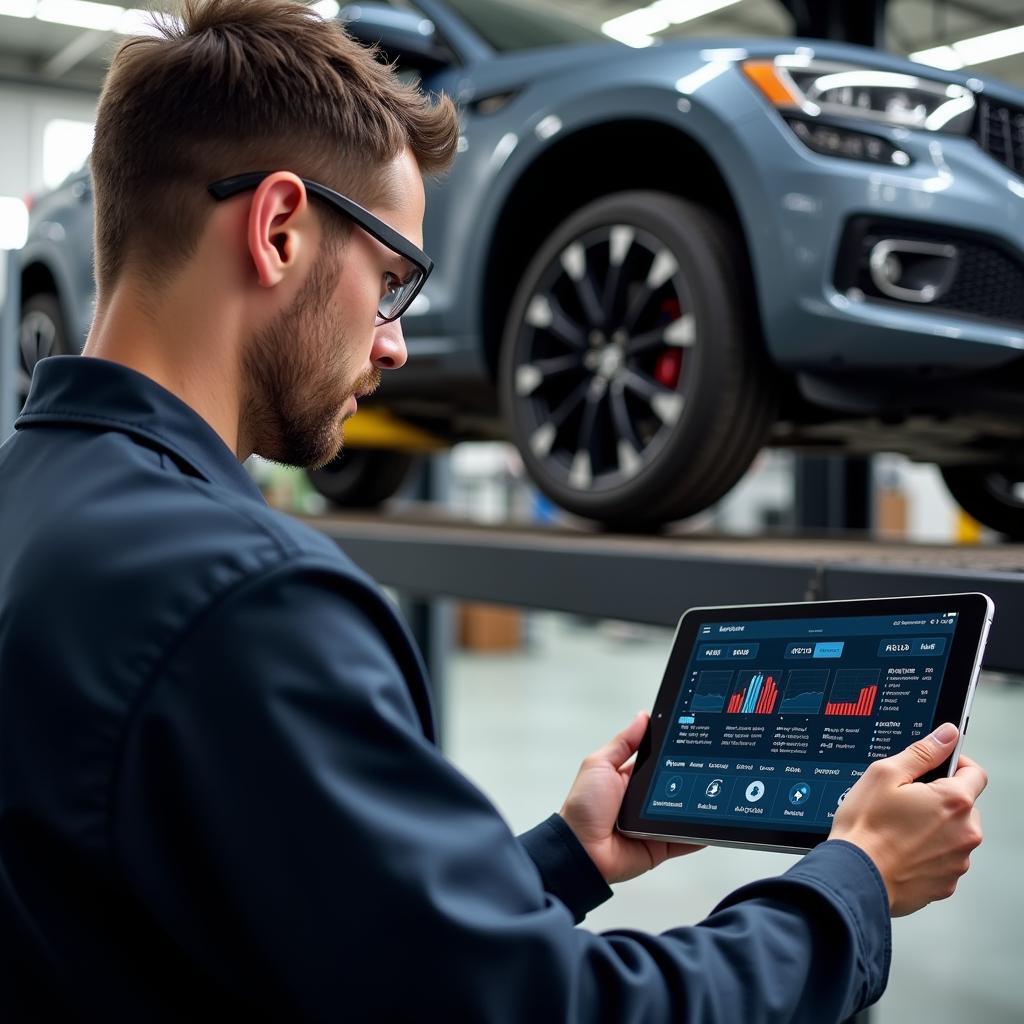Nội dung bài viết
Linux Based Computer Diagnostic Tools are revolutionizing how we troubleshoot and repair modern vehicles. These powerful tools offer a flexible and cost-effective solution for both professional mechanics and DIY enthusiasts. They provide in-depth access to vehicle systems, allowing for precise diagnostics and efficient repairs. Let’s dive into the world of Linux-based automotive diagnostic solutions.
Why Choose Linux for Automotive Diagnostics?
Linux’s open-source nature fosters a collaborative environment, leading to constant development and improvement of diagnostic software. This translates to a wider range of tools, often at a lower cost compared to proprietary solutions. Plus, the flexibility of Linux allows for customization and tailoring to specific needs. What’s not to love?
Open Source Advantages: Cost and Community
One of the primary benefits of Linux based computer diagnostic tools is their open-source nature. This often means free access to powerful software and a vibrant community supporting its development. Imagine having access to a network of experts and enthusiasts constantly improving and refining the tools you use! This collaborative environment results in rapid innovation and a wealth of knowledge readily available online. Need a specific feature? Chances are someone’s already working on it!
Flexibility and Customization
Linux offers unmatched flexibility. You can customize your diagnostic setup to perfectly match your needs, whether you’re a professional mechanic or a weekend warrior tackling DIY repairs. Want to build a dedicated diagnostic machine from an old laptop? Linux makes it easy! Need a specialized tool for a particular make and model? You might just find it within the vast Linux ecosystem.
Getting Started with Linux Based Diagnostic Tools
So, you’re ready to dive into the world of Linux-based diagnostics? Great! Here’s a simple guide to get you started:
- Choose your distro: Several Linux distributions are tailored for diagnostic work. Research and select one that suits your technical skills and hardware.
- Install the software: Once you’ve chosen a distro, install the necessary diagnostic software. Popular options include…
- Connect to your vehicle: Use an OBD-II cable to connect your Linux machine to your vehicle’s diagnostic port.
- Start diagnosing: Explore the software interface and begin reading diagnostic trouble codes (DTCs), sensor data, and more.
ms windows update diagnostics tool
Advanced Diagnostic Techniques with Linux
Beyond basic code reading, Linux-based tools open up a world of advanced diagnostic possibilities. Think data logging, live sensor monitoring, and even ECU flashing. The possibilities are endless!
Data Logging and Analysis
Imagine capturing real-time data from your car’s sensors while driving. This allows you to identify intermittent issues that might be missed during a static scan. Linux makes this possible! You can analyze the logged data later to pinpoint the root cause of complex problems.
linux distro for windows diagnostic tools
ECU Flashing and Programming
With the right tools and knowledge, Linux allows for ECU flashing and programming. This advanced technique enables you to update your car’s software, potentially improving performance and fixing software-related issues. However, proceed with caution – improper ECU flashing can brick your car’s computer!
“Using Linux for diagnostics gives me the power and flexibility I need to get the job done right. It’s a game-changer,” says Alex Thompson, a seasoned automotive technician with over 20 years of experience.
Troubleshooting Common Issues
Encountering problems with your Linux diagnostic setup? Don’t worry, it’s part of the learning process. Here are some tips:
- Check your connections: Ensure all cables and adapters are properly connected.
- Consult the community: The Linux community is a valuable resource for troubleshooting.
“Don’t be afraid to experiment and learn. The Linux community is incredibly supportive, and there’s a wealth of information available online,” advises Maria Sanchez, a software engineer specializing in open-source automotive diagnostic tools.
disk diagnostic tool linux iso
Conclusion
Linux based computer diagnostic tools offer a powerful and versatile approach to automotive repair. Their open-source nature, flexibility, and extensive community support make them an excellent choice for both professionals and DIY enthusiasts. From basic code reading to advanced ECU flashing, Linux empowers you to take control of your vehicle’s diagnostics.
Need help with your automotive diagnostic journey? Connect with us at ScanToolUS! Call us at +1 (641) 206-8880 or visit our office at 1615 S Laramie Ave, Cicero, IL 60804, USA. We’re here to help!


